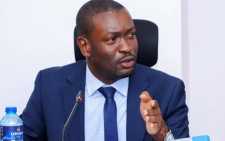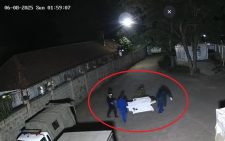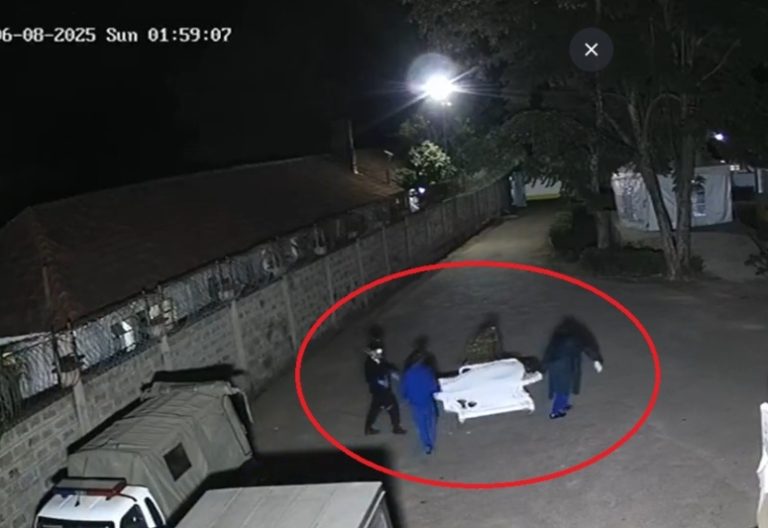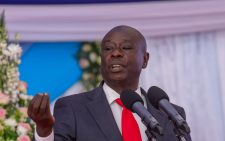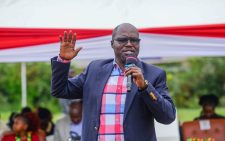Ruto’s past stance on harambees now back to haunt him
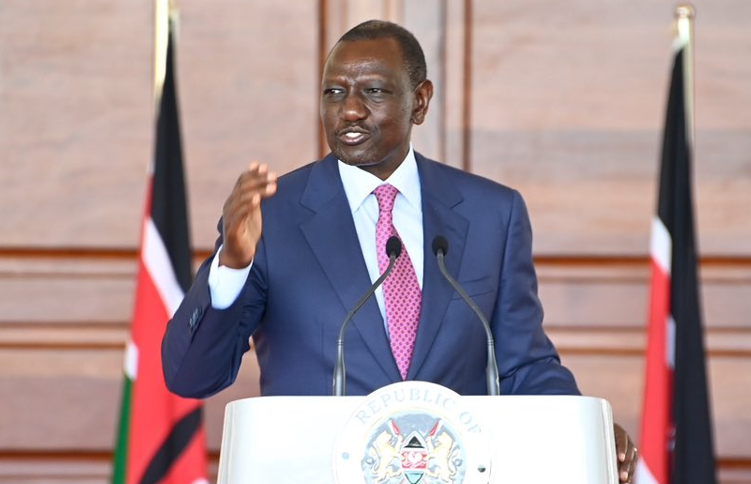
President William Ruto’s rhetoric in his bid to calm down tension in the wake of anti-government demonstrations organised by Generation Z has returned to haunt him almost four months later.
In response to a series of youth-led nationwide protests for better governance, the President Ruto announced several measures that were to be implemented immediately.
They included banning State officers and public servants from participating in harambees, no extension of employment for those who hit the retirement age of 60, and dissolution of 47 parastatals with overlapping functions.
The visibly empathetic President also pledged that the government would help families affected by the protests.
“The government of Kenya will support all those affected,” the President told an attentive nation at the time as the protests threatened the stability of his 22-month-old government.
But it is the President’s response to the public outcry about Cabinet secretaries and MPs donating huge amounts of money at harambees by banning such contributions that has now returned to haunt him.
Barely four days after making a scathing attack on the President’s governing style that has left government functionaries angry, the Catholic church on Monday declined a Sh2.6 million donation from President Ruto, citing ethical considerations and the Public Fundraising Appeals Bill 2024.
The Church’s move, which political analysts say has left President Ruto and his government with egg on their face, has also brought to the fore the issue of politicians using their immense wealth to buy their way to power and win loyalty from Kenyans.
“We must bring to an end the culture where individuals not meriting to be in certain positions purchasing and procuring their way to the top ladder using donations,” Machakos Deputy governor Francis Mwangangi says.
“It is unfortunate that President Ruto is going around the country dishing out millions of shillings in order to retain the presidency in 2027 despite his failure to deliver.”
Mwangangi says Ruto used the same tactics of dishing out money to churches in the countdown to the 2022 elections that he eventually won.
Priests’s house
In a statement, Nairobi Catholic archbishop Philip Anyolo said the church would also refund Nairobi Governor Johnson Sakaja’s Sh200,000, which he donated when he accompanied President Ruto to a Catholic church in Nairobi’s Soweto neighborhood on Sunday.
President Ruto’s donation included Sh2 million for the construction of the parish priest’s house, with a pledge of an additional Sh3 million to complete the project.
Anyolo explained that the donations from the two senior government officials contravened the Public Fundraising Appeals Bill 2024.
The bill, under consideration by Parliament, stipulates that any person who solicits or receives money or benefits while conducting a fundraising appeal must adhere to strict guidelines, whether the appeal is direct or indirect.
“The Church is called to uphold integrity by refusing contributions that may inadvertently compromise its independence or facilitate unjust enrichment. Political leaders are urged to demonstrate ethical leadership by addressing the pressing issues raised by the Kenya Conference of Catholic Bishops,” said Anyolo.
He added that the money already received would be refunded to the respective donors.
The statement emphasised the importance of preserving the Church’s independence and sanctity, highlighting ethical concerns surrounding political contributions.
“The bishops have consistently maintained a firm stance on the matter of politicians donating money to churches, highlighting the ethical concerns and the need to safeguard the church from being used for political purposes,” Anyolo said.
“The Catholic church strongly discourages the use of church events such as fundraisers and gatherings as platforms for political self-promotion. Politicians are urged to refrain from [using] the pulpit for political rhetoric, as such actions undermine the sanctity of worship spaces.”
“These funds will be refunded to the respective donors. Furthermore, the promised additional Sh3 million for the construction of the Father’s house, as well as the donation of a parish bus by the president, are hereby declined.”
Politicians, the cleric observed, are welcome to attend Church for their spiritual nourishment, but they are encouraged to do so as ordinary Christians, without leveraging their positions for political gain.
Anyolo advised Ruto to address key concerns raised by the Kenya Conference of Catholic Bishops, including ending political wrangles, human rights violations, the culture of falsehoods, unfulfilled promises, and misplaced priorities.
Rekindling debate
The church’s decision to turn down the President’s donation is likely to rekindle the debate on some of the promises and measures pronounced by Ruto in a bid to address the concerns raised by Gen Zs at the time but remain unfulfilled.
In a 7 July memo marked confidential, Head of Public Service Felix Koskei reiterated that while the spirit of Harambee continues to propel the noble ideal of nation-building, it has come into disrepute because of perceptions of corruption and abuse of office.
“In that regard, it is notified that His Excellency the President has directed that no State officer and public servant shall participate in public collections (harambees) henceforth,” he had stated.
“Accordingly, all public officers are required to adhere to the highest standards of ethical conduct and to secure their strict compliance with the directive as well as compliance by all officers under their supervision, direction, or control.”
Koskei said this was an attempt to uphold the national principles and values of governance enshrined in Article 10 of the Constitution and various laws.
